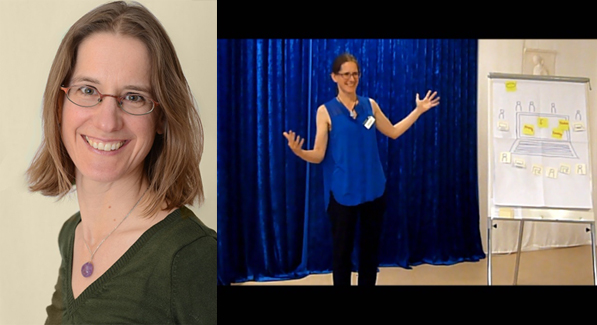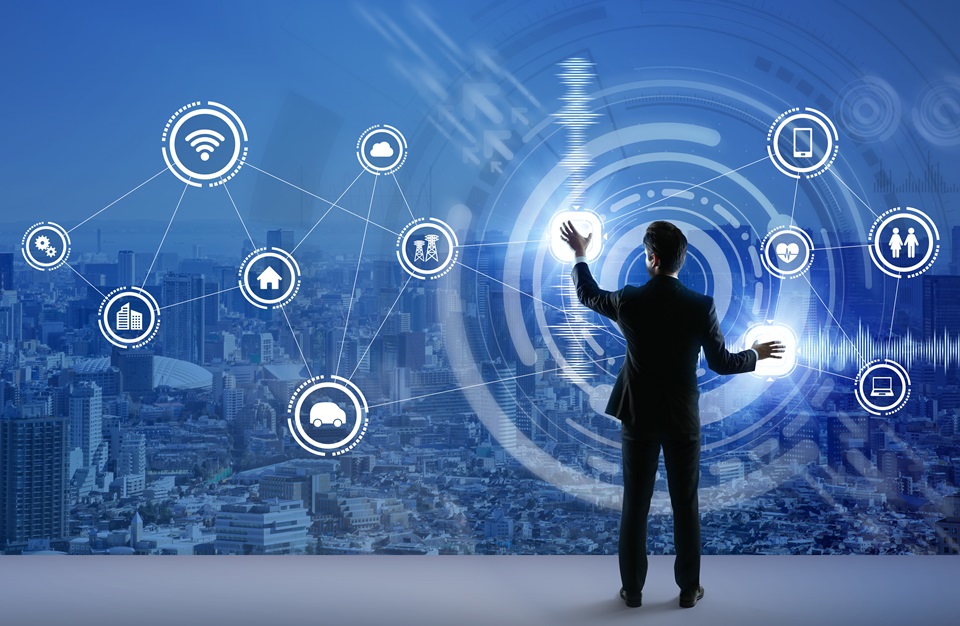Digital change and health – one of the biggest challenges for the future
Does this sound familiar? Quickly checking your emails on your company smartphone during vacation or at breakfast? Preparing the presentation for Monday with your office laptop from home on weekends? Due to modern technologies and flexible work (time) models, the boundaries between work and leisure become increasingly blurred, not only for the self-employed, managing directors or executives, but also more and more for “normal” employees.
Highest flexibility and 24/7 availability are attributes of a new time spirit, which not only creeps into our working world, but also more and more into our private life. Questions arise like: How does it influence our quality of work and life? How does this affect our health?
The topic of digitization is currently on everyone’s lips.
WiFi is omnipresent, people are increasingly connected to each other and to the whole world via social networks, new technologies make it possible to work together on joint projects regardless of location. Digitalization is a prerequisite for this type of networking.
I am Christina Bolte, I was born in Hamburg and live in Munich for 20 years now. My passion is to accompany people in health issues, especially in relation to work. The question I keep asking myself and others is: “How does it work that work promotes health?
That’s exactly what I’m interested in about digital transformation.

Christina Bolte is an expert in corporate health at the Beratung für Unternehmens-Gesundheit (Consulting for Corporate Health) and advises SMEs on burnout and stress prevention, corporate integration management and healthy processes in digital change.
In my article for the Business Voice Magazine I would like to give you more information:
- What is meant by digitization?
- What effects does it have on manufacturing companies and how does it affect the health of employees?
- I have 5 valuable tips extra for you to optimally implement / harmonize digitization and health in your company
What is meant by digitization?
As digitization is a very wide-ranging topic, there is no clear definition. The following description should serve as a basis for today’s contribution.
The German government has launched a large-scale digitalization offensive because it sees it as a decisive factor for tomorrow’s growth, prosperity and work.
Digitization enables numerous advantages, especially significant cost optimization, quality improvement and time savings. In the 20th century, information technology (IT) was primarily used to automate and optimize processes, as can be read in the Springer-Gabler Economics Encyclopedia. Private homes and workplaces were networked and modernized with software products. Since the beginning of the 21st century, the perspective has changed: Instead of “owning” things or information, it is now a matter of “using” them, platforms enable innovative business models and flexible, individualized customer solutions. The term “digital change” is also used here.
What else is influenced by digitization? In addition to optimized processes, the working world is also directly changing: projects and jobs have decreasing duration, “agile” processes require increasing flexibility and risk appetite, because the results and procedures are constantly changing. Thanks to robotics and artificial intelligence, people are no longer the only people to operate machines, but increasingly machines also “operate” people: voice robots that provide orientation at airports or answer calls on telephone hotlines can now only be recognized on second glance, and many of us have already made the acquaintance of Siri, Alexa or Cortana.

What are the effects of digitization?
Digitization is changing working conditions and the way people work together significantly. What is new in the history of mankind is that people also interact equally with machines or software programs (for example, learning programs for speech recognition or for posting incoming invoices are widespread). All of this is developing at a rapid pace. For most employees, these changes are associated with uncertainties, such as: “How can I cope with these new demands?” or: “Will my workplace still be secure in the coming years?”
Security is a fundamental human need, however. Despite state-of-the-art technical inventions, the human body and brain still function as they did in the Stone Age. This is why the human Stone Age brain still reacts cautiously to new things: new things cannot (yet) be assessed, which creates stress for the system. Stability and constancy, on the other hand, provide security and orientation. An enormous contradiction to the required flexibility!
Therefore, the changes associated with digitization are contributing massively to new uncertainties. People simply didn’t have enough time to learn how to deal with them sensibly. Due to the high work density, there is usually little time left for learning. If at all, this happens on the job.

5 valuable tips on how to optimally deal with the topic of digitization in your company:
- Create clear rules for the use of mobile devices – both as a private individual and in your company: Define clear time periods in which emails are answered and callbacks made (also taking into account the individual time difference of international business partners). Clarity creates security in this case.

- Clarify the requirements for current and new processes with your managers and employees. Also consider existing approaches and ideas of your employees, e.g. from the company suggestion scheme. For each individual workflow, define the appropriate contact person who will assume responsibility.
- Two very important points: Train your employees in good time if new knowledge or behavioural changes are required and give them the appropriate (decision-making) authorities.
- Above all, create a solution culture that enables everyone to deal better with change. For example, mistakes are viewed negatively in our culture. In a lived solution culture, an error indicates to me in which areas I can still develop further. The combination of mistakes and learning processes makes it possible to discover new potentials. In doing so, (temporal) free spaces support you in exploring and trying out new things in a playful way.
- Identify a status quo in your company: Which processes are affected by changes immediately or in the medium term? To what extent does this burden your employees? Document your thoughts directly in order to use them as the basis for a risk assessment of mental stress, which has been the legal basis (in Germany) for successful companies since 2014. In addition, corresponding company key figures can serve as early indicators in your reporting system, for example.
Good luck with the implementation. I am looking forward to your experience report. You are also welcome to visit my website:
Christina Bolte
Christina BolteShare:

